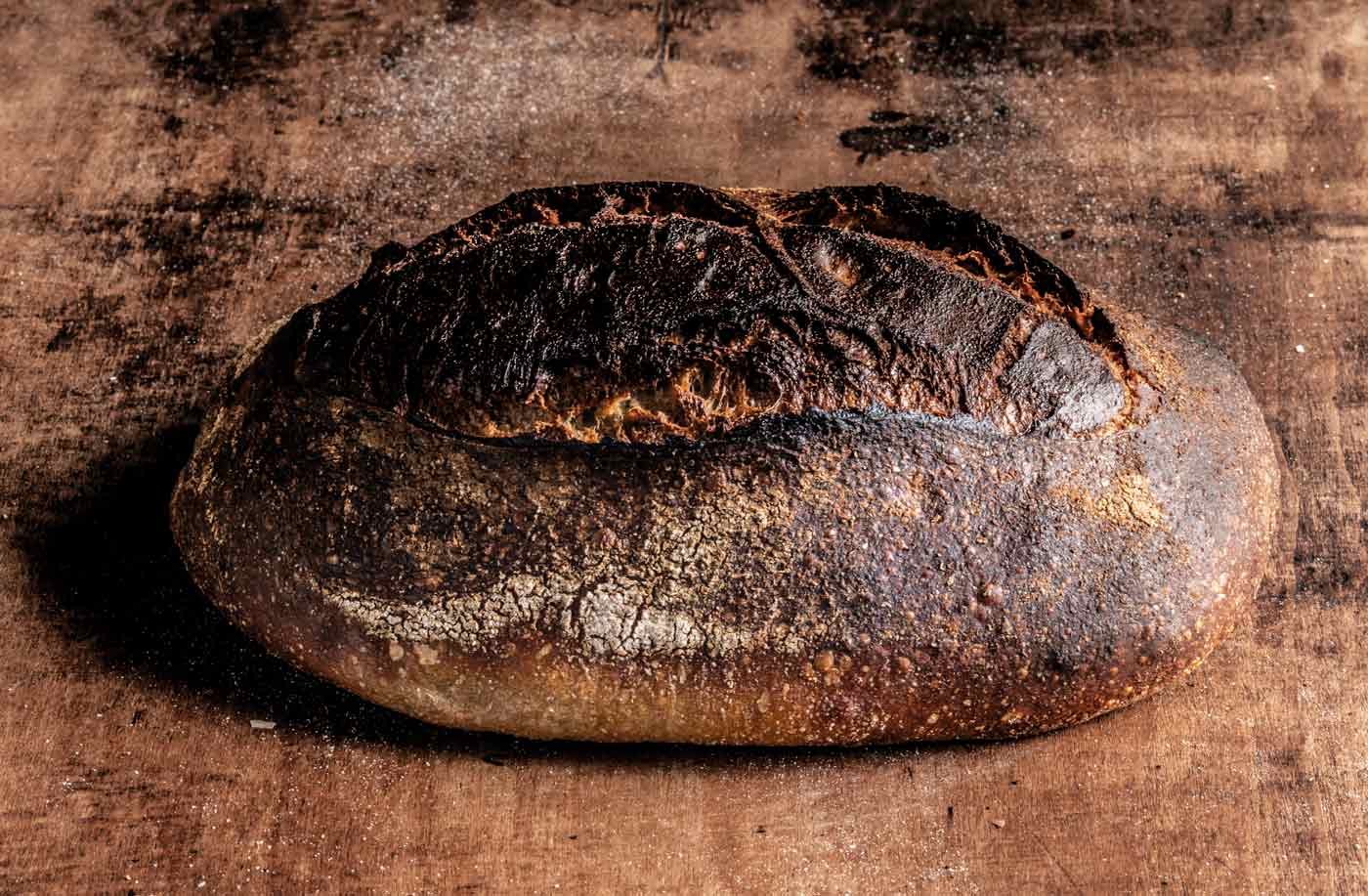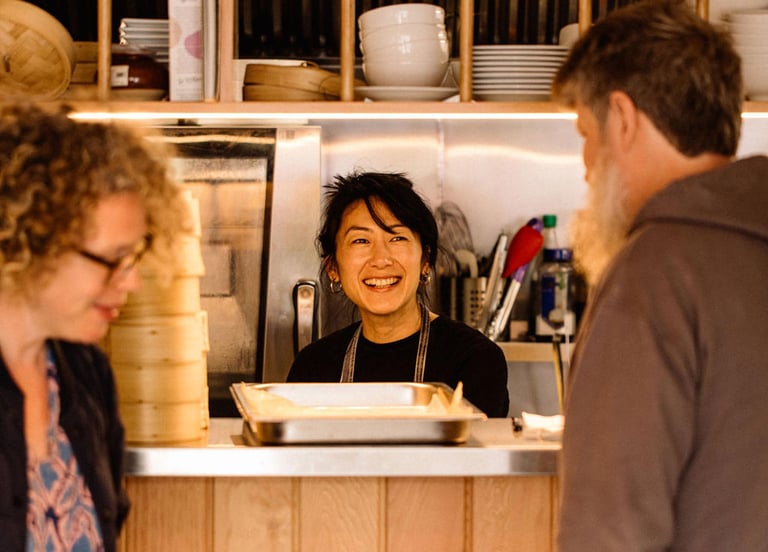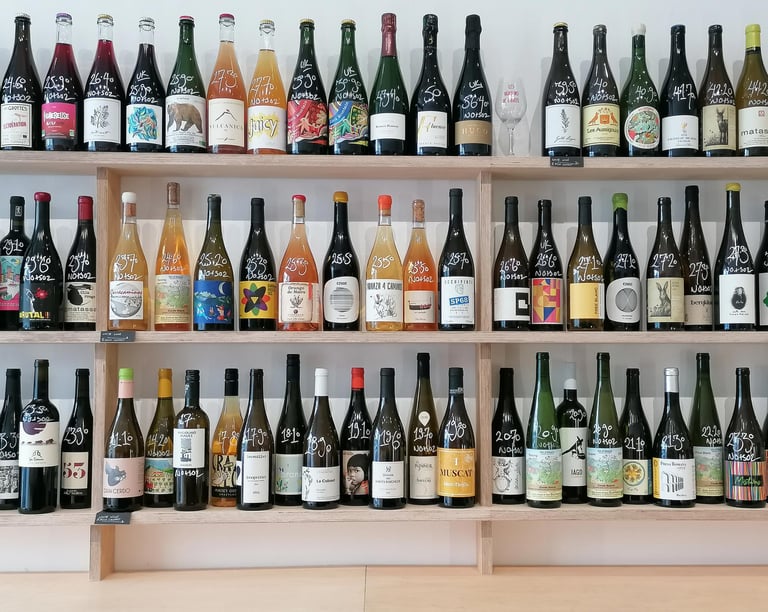We’re eating less bread than ever (most of it mass produced), while simultaneously enjoying an artisan bread-volution of stunning British loaves. We slice beneath the surface of our changing relationship with the daily staple and hunt out the best bakeries to feed your carb compulsion
Staff of life, daily bread, manna from heaven – this simple mix of flour, yeast and water is as firmly rooted in human culture as sitting around a fire. Only recently, scientists at the University of Copenhagen discovered breadcrumbs at a site in north-east Jordan which, at 14,000 years old, even predates agriculture. Yet the nature of our relationship with the long-loved loaf is changing …
The sorry stats
We’re eating less bread then ever – and have been for over a decade. We’re also spending less money on bread than ten years ago, although it’s still bought by 99.8 per cent of British households.
If you’re a foodie, you’ll have seen a rise in artisan bakeries and might presume we’re ditching massproduced bread for hand-raised sourdough, but that’s not the case: the large bakeries which produce wrapped and sliced bread account for 85 per cent of UK bread production, while supermarket in-store bakeries produce 12 per cent. Only a tiny slice of the loaf (3 per cent) comes from high street bakeries – and the “artisan” proportion is even smaller.
Carb curbers
Living a low carb lifestyle has also become a trend in the last five years. Ask people doing it and they’ll usually tell you it’s for health reasons, although the jury’s still out on the pros and cons of eating refined carbs such as white bread.
A well-known exponent of the low carb diet, Dr John Briffa, has pretty damning views: ’There’s nothing in bread that cannot be had more healthily elsewhere in the diet. Bread is made mainly of starch, and starch is sugar … the extent to which bread disrupts blood sugar levels is about the same as table sugar.’
Dr Michael Mosley, whose TV programmes and books include The Blood Sugar Diet, claims that eating a low carbohydrate Mediterranean-style diet that contains few refined, starchy carbohydrates ‘will not only help improve your blood sugar but, for many, will even reverse diabetes or the metabolic syndrome.’
However, the NHS is staunch in its long-held advice: ‘Starchy foods are our main source of carbohydrate and play an important role in a healthy diet. Starchy foods such as potatoes, bread, rice, pasta and cereals should make up just over a third of the food you eat.’ It adds the all-important caveat: ‘Where you can, choose wholegrain varieties.’
Behind the scenes at the supermarket
We’ve all greedily sniffed the delicious scents wafting from the in-store supermarket bakery that conjure up images of loaves being lovingly crafted by a dedicated baker. However, the likelihood that your crusty cob has been kneaded, shaped and proved overnight in the supermarket bakery is pretty slim, according to Chris Young, coordinator of The Real Bread Campaign (www.realbreadcampaign.org).
‘We believe that hundreds of thousands of loaves sold as “freshly baked” or similar are, in fact, loaves made elsewhere, chilled or frozen and then merely rebaked in what we call “loaf tanning salons”,’ says Chris.
The Campaign is pressing for a legal definition of ‘freshly baked’ to be included in the Honest Crust Act, a new legislation it wants Defra to introduce.
‘Making bread the supermarket way uses around twice as much energy as a loaf baked once from scratch and such “bake-off” loaves tend to go stale very quickly, increasing the risk of food waste,’ he says.
Bread that is sold unpackaged doesn’t have to display a list of ingredients, which is another reason we might be forgiven for assuming loaves from the supermarket bakery are akin to those from a local indie bakery.
‘Anyone who does try to find out what went into such loaves is forced to ask a member of staff to fish around for a product folder, as I did recently,’ says Chris. ‘I had to wait ten minutes to learn the “traditional farmhouse” loaf in question was made using 16 different things, including the sort of additives you find in a wrapped, sliced factory loaf.’
The Honest Crust Act proposes that these loaves should be sold with a full listing of the ingredients and additives used.
And what about the traditional plastic-wrapped loaf in the supermarket aisle? This is created using the Chorleywood Process, named after the village where it was created, which uses a combination of high speed mixing, artificial additives and relatively large amounts of yeast to make large, fluffy loaves that rise quickly.
‘While throwing in any number (in some cases a dozen) of ingredients and additives, the thing they throw out is time: the vital ingredient in allowing the dough to naturally ripen and develop flavour, aroma and texture,’ continues Chris. ‘Cutting down on time means processes that might have benefits in terms of health and digestibility – particularly in genuine sourdough – can’t happen to the same extent.’
The bread-volution
But, despite us scoffing less loaves, reducing our carb intake or switching bread for the likes of pasta and rice, there’s an artisan bread movement on the rise. In recent years the South West has seen the development of an authentic indie bakery culture, which has introduced the opportunity to buy handcrafted sourdough loaves made from starter cultures boasting a more impressive lineage than many families.
The artisan baker
A baker at the heart of this revolution is Ben Glazer of Coombeshead Bakery near Launceston.
Creating fairly small quantities of incredible sourdough each day, Ben and colleague Rosie not only feed the carbcraving customers of the farm’s small restaurant but also send bread to some of the best restaurants in the South West (including Restaurant Nathan Outlaw, Jamie Oliver’s Fifteen Cornwall, Paul Ainsworth at No.6 and Pasture in Bristol) as well as up to London.
Ben says: ‘The rise of the artisanal bakery is great but it’s also a shame that it’s hierarchized. It’s easy to get on a high horse and to say that everyone should eat this quality of bread but of course not everyone can afford it.
‘A product like this is a lot more expensive than supermarket bread because the grain (British) is more expensive, the way it’s processed is more expensive, the milling (stoneground) is more expensive and the extra time it takes is expensive.
‘Then it’s slowly fermented so the gluten has more chance to break down and that makes it more digestible. There’s also a higher percentage of wholegrain in it than regular white bread so it contains more minerals and vitamins.
‘We’ve always eaten bread and it’s a key part of so many food cultures around the world. However, in Britain everything went very very wrong after the war when the Chorleywood Process was introduced to enable bakers to use the British grain that was available. I think that a lot of the gluten intolerance we see now is, among other things, linked to this intense processing of flour.’
Ben is optimistic however, and says: ‘Good bread is relatively expensive but these large format loaves do stay fresh for longer and there are always ways of using leftovers so you can make it go further. And, of course, if you make it yourself it’s not expensive – I recommend the Tartine Bread book if you’re going to do that.’
Future developments for the bakery include increasing opportunities for customers to buy bread at the farm, along with phase two of their experiments with specially grown Somerset grain so they can source flour even closer to home.
‘I’m pretty excited by what’s over the horizon,’ says Ben. ‘I don’t know what will happen with bread on the large scale, but I’d like to think that with new, high quality bakeries emerging, and the move to caring about how grain is processed, who grew it and why, we’ll see a trickle down that will help change how we all think about bread – and maybe even influence the supermarkets.’
Hold the bread basket?
Contrary to what you might expect in these carb-curbing times, people are still greedy for a good go at the bread basket at top end restaurants. Michelin starred chef, Michael Caines (above) of Lympstone Manor near Exmouth says: ‘A lot of our customers are now more aware of the importance of good diet and exercise; they work out in the week so that they can come somewhere like this and indulge in guilt-free pleasures on the weekend.
‘Clearly, processed bread isn’t healthy, but there are lots of exciting things going on in the bakery world with the creation of the same kind of artisan breads that people enjoy in France, Italy and Spain. It’s what happens all over the world but we’ve surrendered our small bakeries to processed bread.
‘At Lympstone we bake twice a day and make an artisan product that’s not full of improvers or stabilisers. We also bake three types of bread that are gluten free.
‘I strongly believe that carbs are important for a balanced diet, and I also think it’s important to remember that not everyone can afford expensive artisan products; if you’re feeding a family on a limited income, bread is an important staple. Just try to choose wholemeal bread with grains which your body burns more slowly.’
Source the good stuff
Looking to sniff out artisan loaves and beautiful bakeries across the South West? Here’s the insider’s guide
The Bertinet Bakery, Bath
Fresh off the platform at Bath Spa station, visitors to the historic city are welcomed with the waft of freshly baked bread from The Bertinet Bakery. Spelt, olive and lavender, levain and levure, and rosemary and rock salt focaccia join the sourdough stalwart on the daily menu.
www.bertinetbakery.com
Harts Bakery, Bristol
Swing by this railway-arch-turned-bakery-cafe for an Extract coffee and cinnamon bun en route to or from Temple Meads and you can watch the Hart’s brigade of bakers beavering away in the open kitchen. Organic loaves are made with flour from Shipton Mill in Tetbury, while flaky croissants use French butter and a three day process for maximum height and incredible layers.
www.hartsbakery.co.uk
Exploding Bakery, Exeter
Kneading bread, baking brownies and slinging espresso from its Central Station spot, Exeter’s working bakery cafe is knocking out some of the best bakes this side of the city. Although sweet combos (you’d trip a small child for the last slice of the salted caramel brownie) are the house speciality, the sourdough loaves made with Gilchesters flour are a thing of carby beauty.
www.explodingbakery.com
St Ives Bakery, St Ives
While a slab of toasted sourdough slathered in rich salty butter descends to crumbs in less than a minute at food HQ, fermented slow-rise lovelies (white, wholemeal, rye and sourdough) at St Ives’ busy bakery are 48 hours in the making. Bread brothers, turkish and focaccia, reach peak bounciness in a speedy 36- hour process.
www.stivesbakery.co.uk
Da Bara, Truro
Savvy holidaymakers heading home from St Mawes make a farewell stop at Da Bara’s bakery cafe to stockpile their pick of the Cornish crust for the long ride home. Luscious and buttery cinnamon buns and flaky almond croissants share counter space with crisp french sticks. You can also pick up Da Bara’s doughy delights at Hawksfield on the A39 near Wadebridge.
www.dabara.co.uk
Pinkmans Bakery, Bristol
While this contemporary bakehouse on Park Street deals in filled brioche, freshly fashioned pastries and its signature sour-doughnuts all week, trips to Pinkmans to stock up on warm-from-theoven breads are best on Fridays when the full range of plump loaves come out to play. Choose from the likes of olive, chilli, rosemary and polenta or walnut and black treacle.
www.pinkmans.co.uk
Hobbs House Bakery, Nailsworth
This Cotswolds bakery has been baking bread for the local community since the 1920s and its sourdough starter has cultivated thousands of loaves during its 63 year lifespan. Visit the Nailsworth site (find five others across the South West) for good cafe grub and a loaf for the road.
www.hobbshousebakery.co.uk
Vicky’s Bread at Darts Farm
Daily deliveries of Vicky’s Bread direct from the Helston bakery are a new addition to Darts Farm’s cornucopia food court this year. From french sticks to flat bloomers and saffron buns to fig and raisin loaves, the speciality bakes change by the season – look out for bespoke combos inspired by the farm shop’s foodie themed weekends.
www.dartsfarm.co.uk
Column Bakehouse, Plymouth
This social enterprise reinvests its profits to create opportunities for local people, so picking up a loaf of the house sourdough, rye or charcoal bread not only steps up your sarnies but also makes a difference to the people of Plymouth.
www.columnbakehouse.org
Mark’s Bread, Bristol
Delivering bread to cafes, restaurants and delis across Bristol by bike since 2009, Mark Newman was one of the first bakers to showcase sourdough in this part of the country. Make a pit-stop at the North Street cafe to sample the house special topped with locally sourced mash-ups such as hot salt beef, horseradish and pickled radish.








